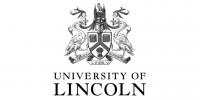MSc Forensic Toxicology
Forensic toxicologists use modern analytical procedures to isolate, identify, and quantify drugs, endogenous compounds, and poisonous substances in biological samples.
This programme is designed to provide extensive training in the theory and practice of forensic toxicology and is taught by research-active academics and practitioners with specialist expertise. The content of the course is aligned to guidance from the United Kingdom and Ireland Association of Forensic Toxicologists on best practice in professional training and development in the field.
Teaching aims to put the theory of forensic toxicology into the context of different case types, including criminal, workplace drug testing, sports doping, family law, and death investigation. Students have the opportunity to learn about the processes involved in providing high-quality forensic toxicology evidence, starting from the chain of custody through to the case strategy, preparation of biological samples and advanced instrumental analysis, to interpretation and presentation of evidence.
The specialist skills and technical knowledge that students can acquire may be transferable to roles in laboratory research, clinical drug monitoring, clinical chemistry, law enforcement, customs and excise, and investigatory agencies in the private sector.
Campus Information
Brayford Pool campus
Our stunning Brayford Pool campus is situated in the city centre with academic buildings, accommodation, shops, restaurants and cinema all within walking distance.
Intakes
- Sep
Application Processing Time in Days: 14
Application Process
Minimum English Language Requirements
| English Level Description | IELTS (1.0 -9.0) | TOEFL IBT (0-120) | TOEFL CBT (0-300) | PTE (10-90) | |
|---|---|---|---|---|---|
| Expert | 9 | 120 | 297-300 | 86-90 | |
| Very Good | 8.5 | 115-119 | 280-293 | 83-86 | |
| Very Good | 8 | 110-114 | 270-280 | 79-83 | |
| Good | 7.5 | 102-109 | 253-267 | 73-79 | |
| Good | 7 | 94-101 | 240-253 | 65-73 | |
| Competent | 6.5 | 79-93 | 213-233 | 58-65 | |
| Competent | 6 | 60-78 | 170-210 | 50-58 | |
| Modest | 5.5 | 46-59 | 133-210 | 43-50 | |
| Modest | 5 | 35-45 | 107-133 | 36-43 | |
| Limited | 4 | 32-34 | 97-103 | 30-36 | |
| Extremely Limited | < 4 | < 31 | < 93 | < 30 |
Job Opportunity Potential
This program aims to prepare students for a career in forensic toxicology. The specialist skills and technical knowledge that students have the opportunity to acquire may be transferable to roles in laboratory research, clinical drug monitoring, clinical chemistry, law enforcement, customs and excise, and investigatory agencies in the private sector. Students may also choose to pursue advanced study at the doctoral level.
PSW Opportunity
UK has announced 2 years PSW for 2021 graduates.
Admission Requirement / Eligibility Criteria
First or second class honors degree in chemistry or a closely related discipline (forensic chemistry, pharmaceutical science, pharmacy, forensic science, biochemistry) or substantive equivalent experience.
Bangladesh
Prospective students require one of the following qualifications:
- Successful completion of a 4 year Bachelor's degree from a recognized institution. A minimum of 65% overall, or a GPA of 3.5, is generally considered comparable to a 2:1. A minimum of 60% overall, or a GPA of 3.0, is generally considered comparable to a 2:2.
- Successful completion of a Master's degree from a recognized institution, preceded by a 3 year Bachelor's degree
English Language Requirements
- IELTS 6.0 (with no less than 5.5 in each band score). Please note that some courses require a higher IELTS score.
India
Prospective students require a good Bachelor's degree from a recognized institution in India (or the UK) with a minimum grade of 50%.
English Language Requirements
Prospective students require one of the following qualifications:
- A minimum of 70% in the Standard XII awarded by CISCE or CBSE (for courses requiring IELTS 6.0). These qualifications should usually have been completed no more than 5 years before enrolling at the University of Lincoln. However, this requirement will usually be waived for applicants who achieved the required High School English grade and subsequently completed a degree in their home country that was taught fully in English. An official letter from the previous institution, confirming that the degree was taught in English, may be required.
- IELTS 6.0 (with no less than 5.5 in each band score). Please note that some courses require a higher IELTS score.
Nepal
Entry requirements vary depending on the course. Typically we require a good Bachelor (Hons) degree from a recognised institution with a minimum of 60% (4-year Bachelor degree).
English Language Requirements
Prospective students require the following qualifications:
- IELTS 6.0 (with no less than 5.5 in each band score). Please note that some courses require a higher IELTS score.
Pakistan
Entry requirements for postgraduate (Master's degree) programs vary by course, although typically range from a GPA of 2.5 – 3.0 (out of 4) if you have studied at a Public university*.
Specific information on postgraduate entry requirements can be found on the individual program pages.
For comparison purposes, a GPA of 2.5 (out of 4) is the equivalent of a 2:2 honors degree. A GPA of 3.0 (out of 4) is the equivalent of a 2:1 honors degree.
English Language Requirements
- English language requirements vary by program although typically range from IELTS 6.0 – 7.0 (or equivalent).
Students who do not meet the above English language requirements may be eligible for entry onto a Pre Sessional English and Academic Study Skills (PEASS) course.
Sri Lanka
Prospective students require a good Bachelors's degree from a recognized institution.
English Language Requirements
- IELTS 6.0 (with no less than 5.5 in each band score). Please note that some courses require a higher IELTS score.
- Course Code: FRSTXCMS
- Course Type: Full Time
- Course Level: Masters/PG Degree
- Duration: 01 Year
-
Total Tuition Fee:
16000 GBP
Annual Cost of Living: 9207 GBP
Application Fee: N/A
Similar Programs
- MSc Contemporary Physiotherapy Practice at University of Lincoln
- MSc Cloud Computing at University of Lincoln
- MSc Advanced Clinical Practice at University of Lincoln
- MSc Nursing (Pre-registration - Adult) at University of Lincoln
- MSc Nursing (Pre-registration - Child) at University of Lincoln
- MSc Nursing (Pre-registration - Mental Health) at University of Lincoln

